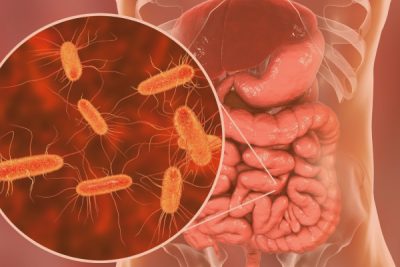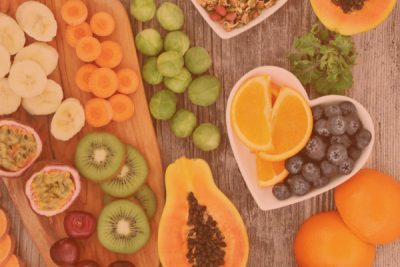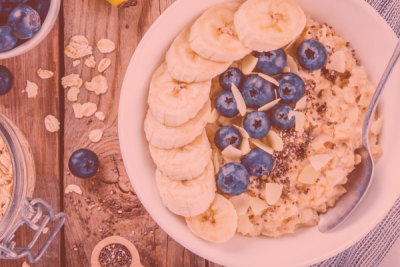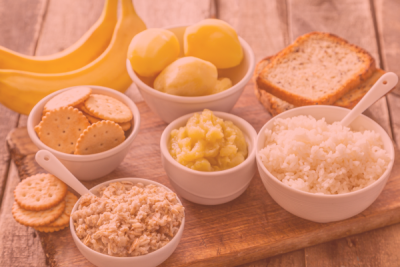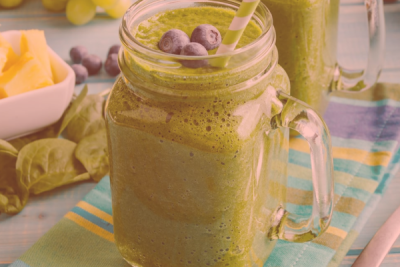Gas and bloating are frequent digestive disorders that cause discomfort and impair overall health. Mindful dietary choices can help ease these symptoms since many foods promote regularity, prevent fluid retention, and improve gut health.
Let us look at foods that can prevent gas and bloating and ease digestive discomfort.
Ginger:
Ginger’s anti-inflammatory characteristics make it an effective home treatment to ease gas and bloating. It breaks down protein, which speeds up stomach emptying and minimizes bloating. Drinking ginger tea or heating it in hot water is one of the best morning drink for bloating.
Peppermint:
Peppermint tea and oil and chamomile tea are popular drinks to relieve bloating since they help to relax gastrointestinal muscles.
Probiotic-rich fermented Foods:
Fermented foods such as yogurt, kefir, and sauerkraut contain probiotics, which are essential for gut health and considered foods good for digestion and bloating. Probiotics enhance stool frequency and consistency while also reducing bloating and abdominal distension.
Fennel:
Fennel seeds, a root vegetable with a licorice-like flavor, have been used for ages to ease gas and bloating due to its antispasmodic effects. They relax intestinal muscles, enabling gas to move through the intestines while preventing bloating.
Asparagus:
Asparagus is a natural diuretic that can prevent gas and bloating by lowering excess water retention. It is high in fiber, with roughly 3 grams per cup, and promotes intestinal health by boosting regularity. Asparagus also contains 63 grams of water for hydration, urinating, and eliminating excess water, which promotes healthy bacteria development.
Bananas:
Bananas, high in potassium and fiber, are one of the fruits good for digestion and bloating as they can control salt levels and decrease water retention. Consuming bananas before meals can reduce gas production in the stomach, making them a nutritious and handy choice for keeping a healthy digestion.
Celery:
Celery, a 95% water-rich vegetable, helps digestion by encouraging gut bacteria development and variety. It softens stools and increases regularity by introducing water into the digestive system. Its root functions as a natural diuretic, boosting urine output to eliminate excess water and salt, and it contains flavonoids, which decrease inflammation, especially in the stomach.
Avocados:
Avocados are a healthy fruit abundant in folate, vitamins C and K, potassium, and fiber. They aid to maintain fluid balance, minimize water retention, and promote regularity. The pear-shaped fruits are high in potassium, which helps regulate salt levels and prevent gas and bloating.
Papaya:
Papaya includes papain, an enzyme that improves protein digestion and reduces flatulence. Its high water and fiber content promotes a healthy digestive system.
Fiber-rich foods:
Fiber is essential for digestive health, and whole grains such as brown rice, quinoa, and oats are foods good for digestion and bloating since they encourage regular bowel movements. Lentils, broccoli, spinach, and berries are rich in fiber and antioxidants.
Pineapple, which is high in vitamin C, manganese, and B vitamins, includes bromelain, an enzyme used in traditional medicine to alleviate digestive issues.
Oats:
Oats are a pleasant whole grain packed in fiber and beta-glucan, a carbohydrate that can help with colon inflammation. Each 1/2-cup serving has 4g of fiber, which helps to reduce bloating and has anti-inflammatory qualities.
Turmeric:
Turmeric, a curcumin-containing spice, contains anti-inflammatory properties and can be added to foods that prevent gas and bloating for enhanced gut-health.
Cucumber:
Cucumbers, with 95% water content, help to reduce bloating by emptying out toxins and improving digestive health. They include quercetin, an antioxidant that decreases swelling and suppresses pro-inflammatory enzyme activity, making them a better option than sugary drinks.
Other foods:
Kiwi, a potassium-rich fruit high in actinidin, may promote digestion and accelerate stomach emptying, thereby alleviating digestive symptoms such as bloating, stomach discomfort, and constipation.
Oranges are fruits good for digestion and bloating since they are high in fiber, water, and vitamin C, and aid regular bowel movements.
Tomatoes are good to patients with Crohn’s disease, malabsorption, and bloating due to its high prebiotic content, anti-inflammatory lycopene, and potassium content, which assist lower salt levels and alleviate bloating symptoms.
Carrots are rich in vitamin A, which is required for gut homeostasis and good bacterial populations.
Switching to gluten-free grains like quinoa, which is high in fiber and antioxidants, can assist with bloating.
Hydration:
Staying hydrated is critical for having a healthy digestive system since water assists in food passage through the digestive tract, prevents constipation, and relieves gas.
Green tea, which includes antioxidants like EGCG, reduces inflammation and enhances digestive movement, whereas coffee, a natural laxative, soothes bloating and promotes regularity.



